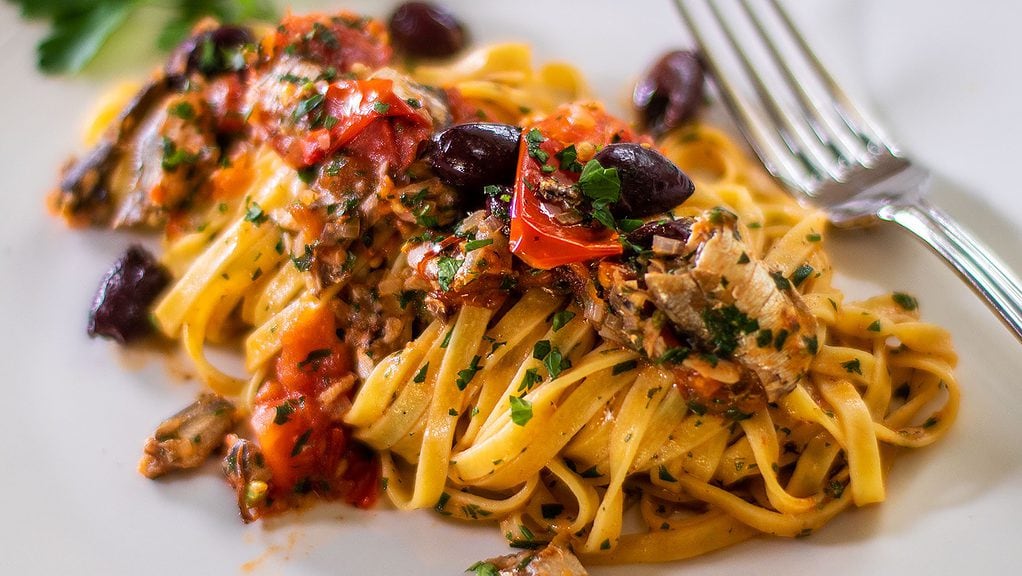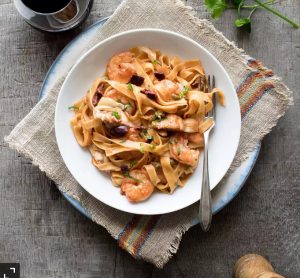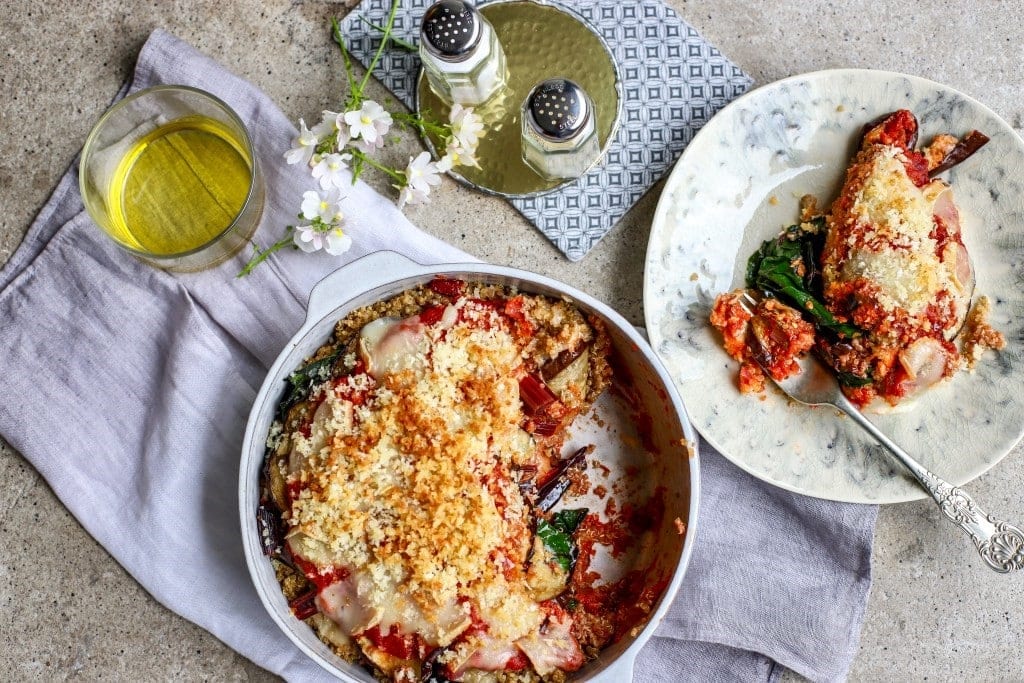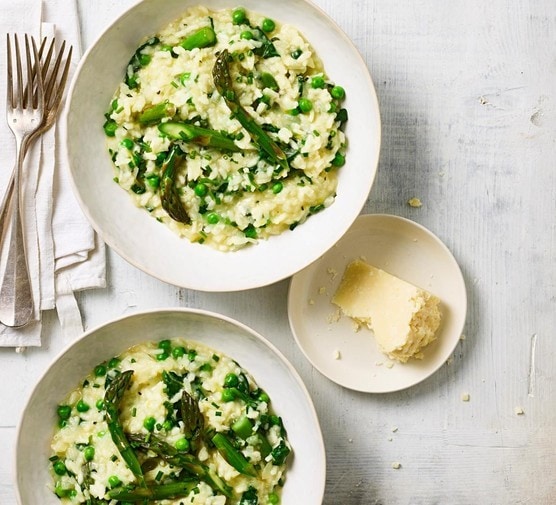Extra Virgin Olive Oil With Linguine Pasta With Sardines, Fennel & Tomato
Matching extra virgin olive oil with the health benefits this incredibly versatile small fish. Sardines have been around for centuries. These small fish are said to be named after Sardinia, an island of Italy, because of the abundance that could be found there. While sardines can be enjoyed fresh, they are highly perishable. This is … Read more
Purchase Evoo
-
Amount
-
Time
-
Course
Main Dishes
Matching extra virgin olive oil with the health benefits this incredibly versatile small fish.
Sardines have been around for centuries. These small fish are said to be named after Sardinia, an island of Italy, because of the abundance that could be found there. While sardines can be enjoyed fresh, they are highly perishable. This is why they’re most commonly found canned.
Sardines are abundant in the Atlantic, Pacific, and Mediterranean seas. They feed on plankton only, which means they don’t contain the high levels of mercury that other fish do.
Sardines may not be a popular fish in the United States. But after you take a look at their nutritional benefits, you might decide to give them a try yourself.
Sardines are a very versatile food. They can be used in salads, as a snack on crackers, or as part of the main course. If you are using fresh sardines, they should be gutted and then rinsed.
Ingredients
Total
- 1 pinch Kosher or sea salt
- 1 tin sardines packed in olive oil (about 4 ¼ oz.)
- 1 splash Morocco Gold extra virgin olive oil
- 2 fat cloves of garlic, peeled, smashed, and roughly chopped (up to 3 cloves total, to taste)
- 1 small or ½ large bulb fennel, fronds reserved
- 1/4 teaspoon red chilli flakes, or more to taste
- 1 cup canned peeled tomatoes with their juice, gently crushed
- 2 ounces white (dry) vermouth
- 1 medium lemon, juice and zest
- 1/3 cup toasted bread crumbs
- 3/4 pound dry linguine
Instructions
Total
- Bring a very large pot of heavily salted water to a boil.
- Open the sardine tin and drain a tablespoon or so of the oil into a wide skillet (the amount of oil in the tin will vary by brand, so add additional extra virgin olive oil if necessary to make up a tablespoon). Warm the oil over medium-low heat and add the garlic, cooking until fragrant.
- Trim the fennel and slice the bulb very thinly (a mandoline works great here). Add to the skillet with a sprinkle of salt, raise the heat to medium, and cook until the fennel is soft and beginning to caramelize. Add the chile flakes and let them sizzle for a minute, just until fragrant, then add the tomatoes with their juice. Cook until the liquid is reduced, then add the vermouth and let that reduce slightly.
- Add the sardines to the skillet with the tomato and fennel mixture, breaking up slightly but leaving some chunks. Zest the lemon and combine a tablespoon or so of zest with the toasted breadcrumbs, then set aside. Juice the lemon and add the juice to the pan. Taste and adjust salt if necessary.
- Add the linguine to the boiling salted water, cooking it until it is just short of al dente. Using tongs, transfer the linguine to the sauce to finish cooking, adding a little bit of the starchy pasta water and tossing gently to combine. (You'll want to leave this a little wet, as the breadcrumbs will soak up the sauce and dry the pasta out a bit once you've added them.)
- Transfer the pasta and sauce to a large, warmed serving bowl (or individual pasta bowls), add a drizzle of olive oil, sprinkle on the toasted breadcrumb-lemon zest mixture, and garnish with picked small fennel fronds and the remaining lemon zest.
From The Larder
Nutritional benefits of eating sardines
These small fish are packed with nutrients that can be beneficial in the prevention of a number of health conditions. Some of these nutrients are known to help prevent heart disease or may protect against certain cancers.
Sardines are sometimes recommended for pregnant women and older adults. They contain calcium and other vital nutrients.
Omega-3 fatty acids
Omega-3 fatty acids help prevent heart disease due to their anti-inflammatory properties. Sardines are an excellent source of them. Omega-3 fatty acids also reduce the risk of blood clots and lower blood pressure. And they may help protect those who’ve had a heart attack in the past.
Vitamins
Sardines are an excellent source of vitamin B-12. This vitamin helps your cardiovascular system and gives you energy. In addition, these fish contain a healthy amount of vitamin D. Along with B-12, D is necessary for good bone health throughout your life.
Calcium
Sardines are an excellent source of calcium. That makes them a good choice for those who are lactose intolerant, allergic to dairy, or need more calcium in their diet. This can also be helpful during pregnancy if you need alternative forms of calcium for the health of your baby.
Minerals
Along with calcium and lots of vitamins, sardines contain a number of beneficial minerals. These include:
- niacin
- iron
- potassium
- magnesium
- zinc
- phosphorus
Protein
Sardines also have protein, which is essential for you to build healthy bones and muscles. Protein also helps create antibodies that keep our immune systems strong. In addition, it takes nutrients and oxygen to all the parts of the body.
How to select sardines
If you purchase canned sardines, it’s better to buy those that are packed in olive oil rather than soybean oil. They also come packed in water. This version is a good option if you’re looking for ways to reduce your fat intake.
Whichever you buy, be sure to check the expiration dates on the can prior to purchasing. If you purchase sardines fresh, be sure to inspect them first. Things to look for in fresh sardines include:
- fresh smell
- shiny skin
- bright eyes
- firm texture
Important Disclaimer
The information provided on this website is for general informational purposes only. All content, including text, graphics, images, and information, is presented as an educational resource and is not intended as a substitute for professional medical advice, diagnosis, or treatment.
Please consult with a qualified healthcare provider before making any decisions or taking any action based on the information you find on this Website. Do not disregard, avoid, or delay obtaining medical or health-related advice from your healthcare provider because of something you have read on this Website.
If you think you may have a medical emergency, call your doctor, go to the nearest emergency department, or call emergency services immediately. We are not responsible for any adverse effects resulting from your use of or reliance on any information or content on this Website.
By using this Website, you acknowledge and agree to this disclaimer in full.



